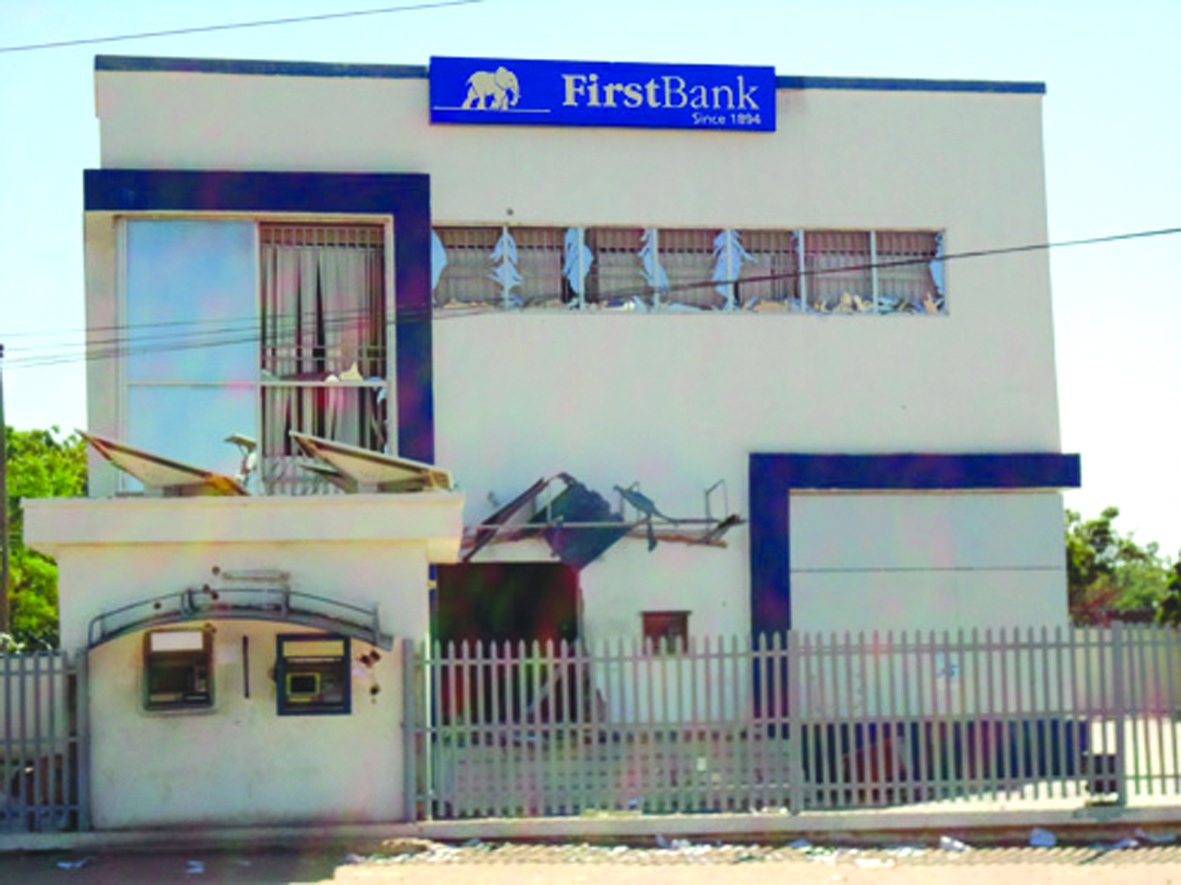As Boko Haram, the Islamic fundamentalist group, continues to terrorise the North-east, its members’ atrocious activities have impacted negatively on the banking industry with many banks counting their losses, reports Osaze Omoragbon
While the nation relishes the ongoing military onslaught against the terror group— Boko Haram, banks are quietly counting their losses following sustained attacks on their facilities in the north-eastern part of the country in the last few years. Some months ago, First Bank lost huge sums of money to suicide bomb attack at an ATM in its Azare branch in Bauchi State. The attack which left scores of people dead resulted in the closure of the branch. Industry watchers say as the insurgents ravage the area, there is likelihood that more banks will close their branches.
Indeed, several banks have closed shop in the restive region due to rising spate of insecurity with its attendant costs. Sources claim no fewer than 30 bank branches have been closed in Potiskum and Damaturu, both in Yobe State, Mubi in Adamawa and Azare in Bauchi State, just to mention a few. “The North-east is now a sour place for banks,” says a management staffer with one of the banks that closed shop. Other branches in the region are said to be on high alert even as they take extra security measures against retaliatory attacks following the military onslaught against the insurgents. Some branches have been advised by their head offices to close earlier than the official time to avoid terrorist attack. There are days when some banks close their doors as early as 1pm while advising customers to patronise the ATM and other electronic platforms.
In Gombe State, where terrorist activities are still relatively low bankers, according to sources, are apprehensive when at work; suspicious of every customer not knowing who could disguise only to launch terrorist attack. Recently, a suspected terrorist was mobbed to death at a motor park by angry youths in Gombe. “Bankers are symptomatic of everything that Boko Haram detests. Whether it is their dress code or the services they provide, they see as western lifestyle,” says Fidelis Onochie, a banker based in Bauchi.
The losses
Aside the staff that have been rendered redundant, banks are said to be missing profitable business opportunities especially cross-border transactions which is said to be very lucrative. Staff of closed branches are being reassigned to other branches doing little or no work while still earning their fat salaries. Buildings, office furniture and fittings are left to rot away while some banks are praying that normalcy returns soonest. Cross-border transactions involving businessmen in Cameroon, Niger and Chad have taken a hit. This business which usually involves trade in food commodities, poultry and livestock has seen less of bank financing especially in the last two years. This robs entrepreneurs of the much needed capital, resulting in loss of banks’ profits. As at the time of filing-in this report, investigations showed that few banks opened in Mubi even as some banks took the hard decision to exit the area completely prior to the recent attacks. Uncertainty, according to sources, is clouding decision making for bankers. Observers say until recently that the Army was perceived as weak and could not be trusted with information as regard the safety of these places.
Electronic transactions which are pushing the boundaries of banking is the most severely hit with the terrorists blowing up ATMs and telecom masts. This has slowed electronic banking services in a region that lags behind others in indices of poverty and financial inclusion. The result is that the Central Bank’s target of achieving financial inclusion will be severely affected.
Indeed, schools have been closed for fear of losing pupils and students to the terrorists such as the case of the still missing Chibok girls, about a year after they were adopted. This has closed another business avenue for the remaining few banks whose services are employed by schools in the region.
Implications
What are the implications? The terrorist activities, according to observers, will affect the balance sheets of banks; no matter how little. Some analysts dismiss the claim that the bottom-line of the banks will be affected since the region contributes a disproportionately low share to the income and assets of the banks. A closure of the branches in the North-east, they believe, will not materially affect the balance sheet of the banks. “While it is true that income from banks is mostly generated in southern part of the country, however, it will be naïve to think that the North-east region is free riding on banking services. Prior to the attacks, our bank made handsome profit,” says a banker who pleaded anonymity.
The broader social consequence is that development will be retarded in the North-east to the extent that not even the imposition of State-of-Emergency by the federal government in the affected states will easily serve as a remedy. Experts contend that banking is based on trust and the terrorists are destroying that trust by sowing mutual suspicion which banks will not find easy to rebuild when peace eventually returns.
[divider]


